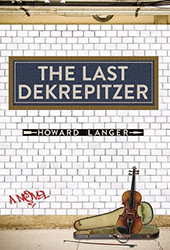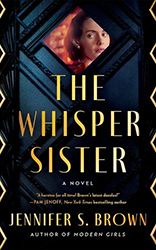In the summer of 2022, the award-winning novelist David Wright Faladé published the New Yorker essay “The Truth About My Father,” a deeply felt account of his own mixed-race origin story. In the piece, he reveals long-shrouded family secrets and untangles the “intertwined stories” that shaped his coming of age in the sixties and seventies in a small town in Texas.
In his highly anticipated The New Internationals, Faladé fleshes out the original New Yorker essay, immersing readers in the world of postwar, post – Vichy France of the late 1940s. Paris is still reeling from the terrors of Nazi occupation, undergoing political unrest, and beginning to feel the presence — and multicultural challenge — of aspiring immigrants arriving from the formerly French colonies of West Africa. They come seeking opportunity in a country that professes “égalité.”
The protagonist of The New Internationals is Cecile Rosenbaum, a lovingly drawn stand-in for Faladé’s biological mother. A fiercely idealistic, politically engaged young woman from a bourgeois family, Cecile avoids the murderous fate awaiting French Jews by being sent as a young girl to a Catholic boarding school in the French countryside. After the war, in her Parisian village, Cecile witnesses the horrific burning of local Nazi collaborators by a vengeful mob. The trauma indelibly shapes her Jewish identity: she is self-consciously non-religious and politically driven. Indeed, the young Cecile comes to recognize a vexing duality at the core of her being: “Victims all, and victimizers too.”
Cecile chooses to wear a Star of David pendant “visibly, insistently,” as the outward sign of her deepest self. Confiding to her closest friend, Minette — who is mixed race and who shares in Cecile’s Leftist struggle against De Gaulle — Cecile confesses, “I wear it now by choice, to spite [the Vichy traitors].” In this respect, Faladé associates Cecile’s Jewish identity with his own mother’s instinctive will to transgress, her defiance of social norms.
In this heady, sexually open, utopian atmosphere of postwar Paris (Faladé evokes familiar cityscapes, including the Louvre, St. Germain, and the emerging banlieues), Cecile encounters two young Black men who will ultimately determine her future, her fate: Seb, the ambitious, dignified grandson of a West African king who is searching for his roots; and Mack, the smooth-talking African American GI who introduces Cecile to American jazz, foodways, and Louis Armstrong. As a young boy, Seb was sent to Paris, along with his brilliant older sister, to fulfill the royal family’s immigrant dream of finding New World success in architecture. Mack dreams of whisking Cecile back to Kansas City where (in his fantasy) she would mop the floors of his mother’s kitchen.
The Seb-Cecile romance forms the emotional core of The New Internationals. For Seb, Cecile may be a “Yovo” (white), allied with the colonialists, but “her presence in his life calmed his malaise about his own presence in France.” Each softens the other’s traumatic memories — which for Cecile is the terror of the Occupation, and for Seb, the anxiety that haunts the act of migration. Each helps the other feel “safe, serene”; each helps the other create a new story, and thus forge a new identity.
In Faladé’s rendering, Cecile is caught between her two lovers, and each senses something deep and uncontainable in her. In one powerful scene, Mack and Cecile find themselves in a Paris metro car in the middle of a political riot. During the terrifying ordeal, Mack has an epiphany, an uncanny image of what a packed train carrying Jews to the death camps must have felt like. But he also thinks that “if they had come for [Cecile], put her on a pack train and shipped her off to the camps, she’d have been one of the ones to come back.” On some level, Mack realizes that Cecile “didn’t need him. She didn’t need anyone.… She would flower in the dunes and quiet of the desert.”
At the end of The New Internationals, Cecile remains unsettled, a survivor, still defiantly displaying her Jewish star. She finds herself — startlingly — married to Mack, living in his insular African American community in Kansas City. Yet Cecile continues to long for Seb, who is based on Faladé’s biological father. “She loved, truly loved, only Seb.”
In his New Yorker essay, Faladé speaks of “the contradictions which had fueled [his mother’s] lifelong restlessness and which also informed her improbable sense of hope.” In its loving and clear-eyed portrait of Cecile Rosenbaum, The New Internationals evokes that deep and abiding restlessness, which is shaped by a vision of a new world filled with hope and possibility.
Donald Weber writes about Jewish American literature and popular culture. He divides his time between Brooklyn and Mohegan Lake, NY.





